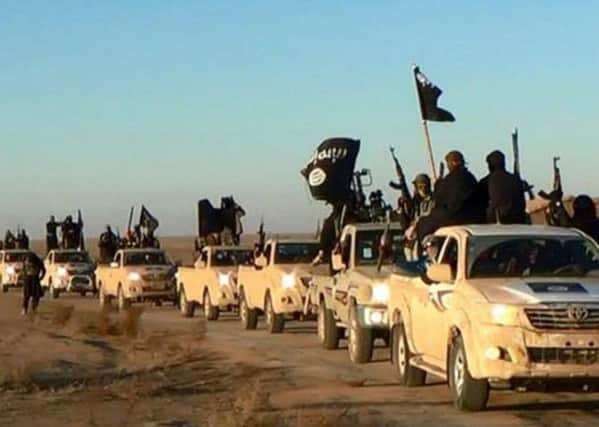Leaders: Boots on ground requires political bravery


Nicola Sturgeon, amongst many others, has voiced serious reservations about the military action proposed by the UK Government. Her judgment is that the UK opting to take part in a bombing campaign targeting IS installations in Syria will not make the world a safer place. Indeed, she argues that air strikes may end up helping rather than hindering IS terrorists, albeit inadvertently.
Ms Sturgeon has also raised concerns about civilian casualties, despite the Prime Minister’s assurances that strikes will be exclusively against IS.
Advertisement
Hide AdAdvertisement
Hide AdThe First Minister’s concerns are entirely legitimate, because going to war raises considerable risks and challenges. Recent experience in Iraq and Afghanistan testifies to that.
But when MPs meet today to debate Mr Cameron’s motion, it looks as though they will conclude that the risks are worth taking in order to negate the threat posed in Europe by IS.
With the world shocked by the carnage that unfolded in Paris last month and the French president calling for Britain’s support in the fight against terrorism, action has to be taken.
A bitterly divided Labour Party has been unable to come up with an alternative strategy, and the facts of the matter are that once votes are counted tonight the RAF will begin to gear up for a Syrian bombing campaign. And as air strikes are looking inevitable, it is imperative that the RAF’s efforts are supported by a credible strategy on the ground.
When outlining her case against Mr Cameron’s plans, Ms Sturgeon identified very real difficulties in that regard. She disputed Mr Cameron’s insistence that there is a 70,000-strong moderate Syrian army ready to support his bombing campaign. Ms Sturgeon questioned how effective they would prove, how they are commanded and whether they could be co-ordinated properly.
She is not alone in her concerns. Lieutenant-General Gordon Messenger, the Deputy Chief of the Defence Staff, hardly gave the Syrian military resources a ringing endorsement when he said: “I don’t think we should dismiss them, but nor should be try and invent some coherence where it doesn’t exist.”
Lt-Gen Messenger estimated an IS fighting force of 20,000 to 30,000, a figure that suggests real progress could be made on the ground if the right resources are committed to the fight.
Mr Cameron may have ruled out sending in troops, but for this operation to succeed there have to be boots on the ground that can be trusted to capitalise on air strikes. So the question is: whose boots? The answer is that there must be a multi-national force, which includes British troops, to ensure the job is done properly. It is a difficult decision to take, but it is one that has to be taken swiftly. The more dithering, the more difficult it becomes.
Advertisement
Hide AdAdvertisement
Hide AdAfter Iraq and Afghanistan it would take a brave political leader to send in troops. But in this case it is the right thing to do. No-one ever said going to war would be easy.
Rail joy on the up line to anger
There was much rejoicing when the Borders Railway was resurrected this year, half a century after the original line was handed a death sentence by Dr Richard Beeching.
Decades of campaigning by locals who desperately missed the dearly loved line culminated in a joyous day when Her Majesty the Queen opened the new service alongside the First Minister Nicola Sturgeon.
That sense of achievement, optimism and celebration contrasts with our report today. More than two in three trains are arriving late with passengers suffering from a “miserable” service, according to the campaigners who worked so hard to have the line reinstated.
Campaigners say that ScotRail is to blame for the poor record, because it has consigned its least reliable locomotives to the railway. Also, there were earlier concerns about cutbacks to the originally intended length of double track – meaning there are not enough opportunities for trains to pass each other.
As David Spaven, a rail consultant and author with a special interest in the Borders Railway, put it: “This is not an acceptable quality of service. The timetable is just too vulnerable to meltdown when things start going wrong.”
Perhaps it is unreasonable not to expect the odd teething problem when a new line gets up and running, but in this case the difficulties are too pronounced to be easily forgiven or explained away.
Angry passengers quite rightly demand an improvement. The railway authorities would be well advised to act and sort out the problems.
Otherwise the huge amounts of goodwill that surrounded the line’s opening will disappear faster than steam from the funnel of the engines that once plied their trade on the old Waverley Line.